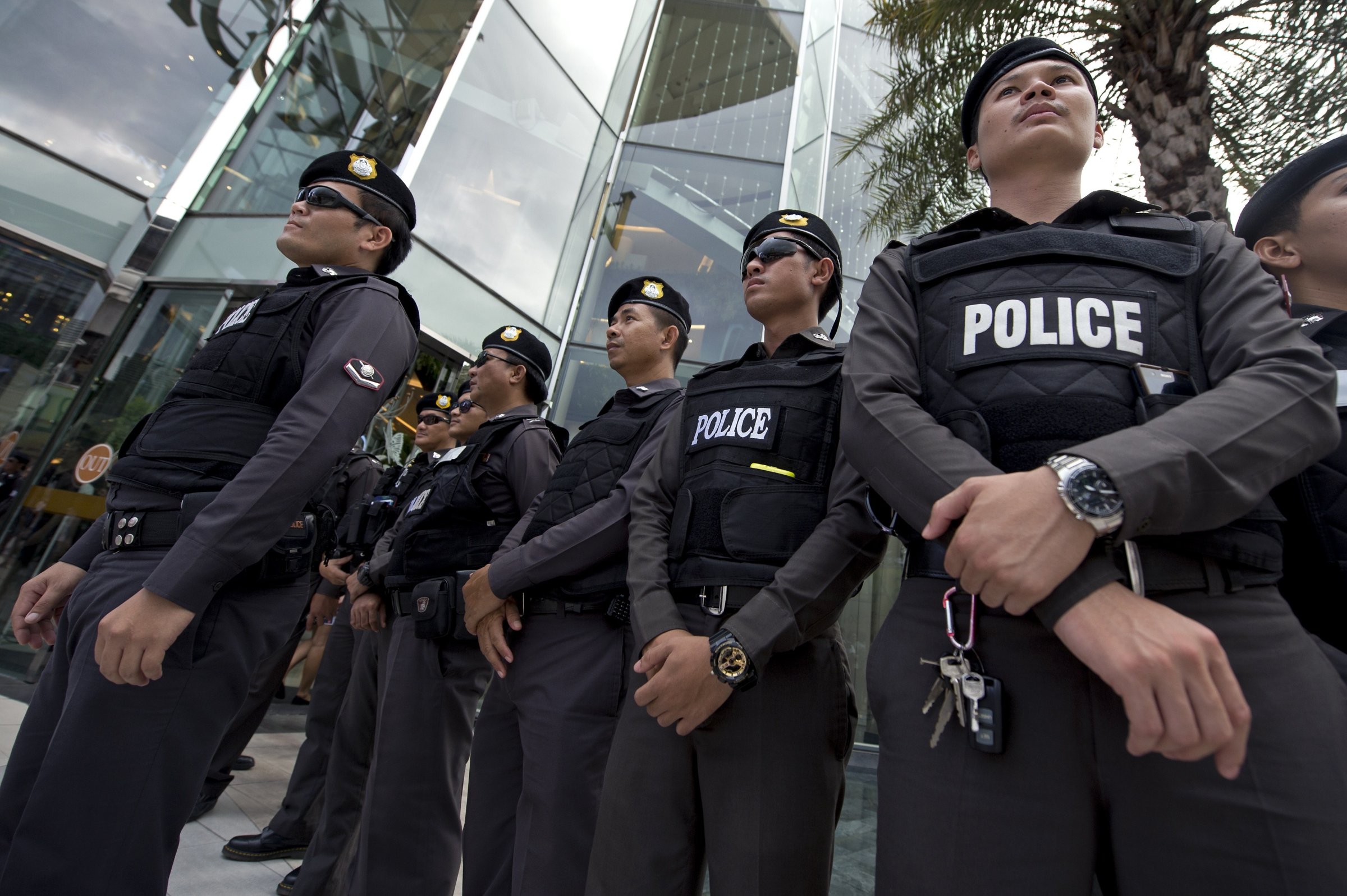
Pavin Chachavalpongpun, the prominent Thai political scholar and outspoken opponent of the country’s coup, has had his passport revoked as part of the Thai junta’s ongoing campaign against dissenters.
“I am now a stateless person,” Pavin, who is based at Japan’s Kyoto University, tells TIME. “The junta not only claims the right to take control of politics, but the right to define who should be, or should not be, Thai citizens.”
Pavin has not been charged with any crime and is now expected to seek asylum in Japan.
Since the May 22 putsch, the junta has stifled all forms of opposition. Politicians on both sides of the political divide have been detained, strict censorship introduced and peaceful protesters hauled off the street by soldiers in civilian clothing for the merest flickers of dissent. These include making the three-fingered salute from The Hunger Games, reading George Orwell’s dystopian novel 1984, and serving or eating sandwiches — an anticoup symbol — in an “antagonistic” manner.
Thanapol Eawsakul, editor of the Red Shirt–leaning Fah Diew Khan magazine, was detained over the weekend for simply posting on Facebook that military authorities had instructed him to refrain from making critical remarks about the junta. He is expected to remain in custody for seven days.
Until now, only Thai nationals outside the country have felt able to voice opposition to the coup — the Southeast Asian nation’s 12th since 1932. However, this may change now that Pavin has been made an example of. Considerable pressure is also being put on dissenting Thais living abroad, through both diplomatic channels and threats to family members still at home.
Pavin was a particularly vocal critic of the military and repeatedly refused to return to his homeland and report to the authorities as instructed. When first summoned, he famously offered to send his pet Chihuahua instead, and has continued to pen disparaging op-eds and to condemn the junta to foreign media.
Meanwhile, on Thursday the BBC’s World Service launched a new Thai-language “pop-up” Internet service to counter the propaganda being peddled by the military regime.
“One of the fundamental principles of the World Service is to bring impartial and accurate news and to countries when they lack it,” Liliane Landor, controller of language services for the World Service, told the Telegraph. “We think the time is right to trial a new Thai and English digital stream to bring trusted news and information to people inside Thailand.”
More Must-Reads from TIME
- Donald Trump Is TIME's 2024 Person of the Year
- Why We Chose Trump as Person of the Year
- Is Intermittent Fasting Good or Bad for You?
- The 100 Must-Read Books of 2024
- The 20 Best Christmas TV Episodes
- Column: If Optimism Feels Ridiculous Now, Try Hope
- The Future of Climate Action Is Trade Policy
- Merle Bombardieri Is Helping People Make the Baby Decision
Write to Charlie Campbell at charlie.campbell@time.com